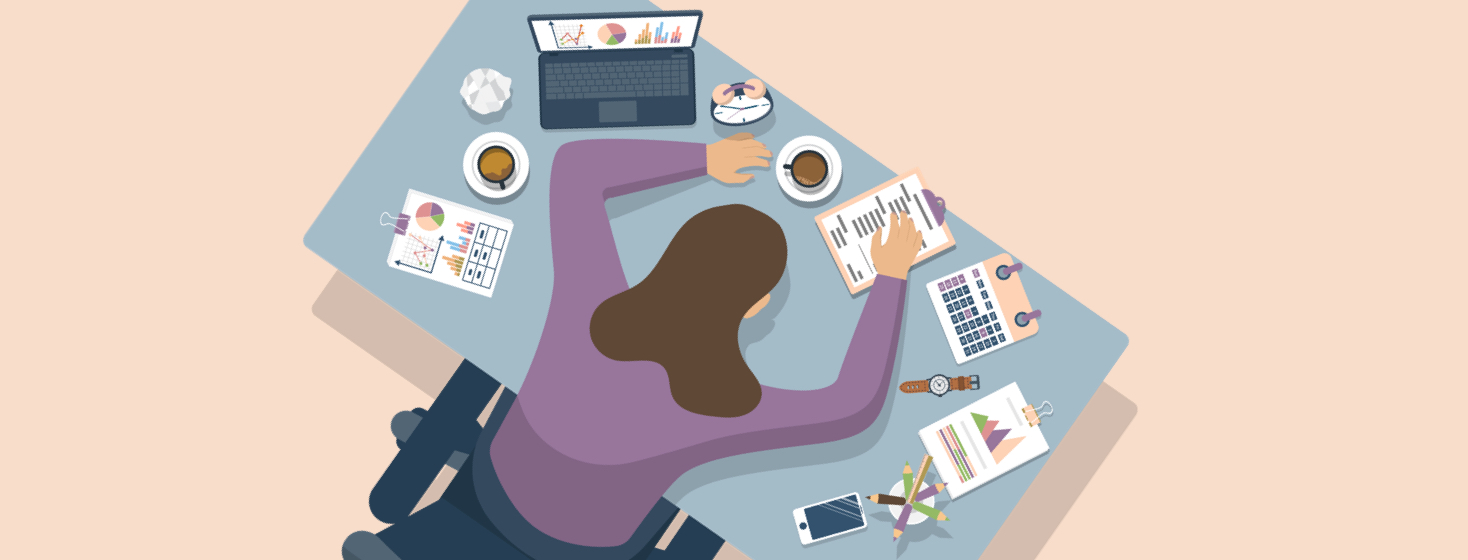IBS Triggers That Are Not Food
Irritable bowel syndrome (IBS) is a complex condition that requires treatment from many angles. The first step that many people take in IBS treatment is a change in diet.
Changing your diet and identifying food triggers is very important for improving symptoms. But there are many non-food related strategies that should also be considered for well-rounded lifestyle management of IBS.
I review here some potential triggers for IBS that go beyond food.
Non-food IBS triggers
Our brain and gut communicate a lot, but sometimes the message is wrong. In IBS, we often sense pain when digesting foods instead of sensing what should be feelings of “normal digestion.” We want to break the cycle between our stress and our symptoms, as one can lead to the other and vice versa!1
In order to fix the message, we can try stress-reduction techniques that are based in mindfulness. Some examples include: meditation, hypnotherapy, self-compassion exercises, and cognitive behavioral therapy (CBT) with a registered psychologist.1
Sleep and IBS
Getting a restful and uninterrupted sleep improves how our bodies operate, including our gut. Researchers have identified that there is a connection between poor sleep quality and IBS symptom severity. Sleep and stress often go hand-in-hand, so practicing mindfulness for stress reduction often improves sleep as well.2
Try things like meditation or journaling before bed. It is also a good idea to limit screen time prior to sleep. You may also wish to talk to your doctor or dietitian about supplements or medicines to improve sleep.
Medicines and IBS
There are numerous medicines that can impact the gut. However, many of these medicines are essential to manage infection, blood sugars, or other chronic conditions, so stopping them is often associated with greater risk than benefit.3
Given that it may impact your IBS symptoms, discussing a management strategy with your doctor, dietitian, or pharmacist can help to lessen the effects on the bowels. We all react to medicines in our own unique way, so what may cause symptoms in one person might have no impact in another.3
Some examples of medicines that may worsen IBS symptoms include:3,4
- Metformin – This drug for blood glucose management is commonly associated with an increase in the prevalence of diarrhea.
- Antibiotics – If you have a bacteria infection, taking antibiotics is medically necessary. However, they can be quite hard on the gut, as they kill the harmful bacteria but can also upset the balance of good gut bacteria. Taking a probiotic supplement can help to reduce your risk of antibiotic associated diarrhea. Talk to your dietitian or doctor about the best options for you.
- Sugar-free cough and cold products – Most of the cough syrups and soothing throat lozenges on the market today are sugar free. However, companies often add sugar alcohols or polyols to enhance flavor. These can potentially lead to diarrhea, as they pull extra water into the small bowel. Look for cough syrups and lozenges without the following ingredients: sorbitol, mannitol, maltitol, xylitol, or polydextrose.
If you are unsure whether the medicines you take could be impacting your IBS symptoms, talk to your doctor or pharmacist.
Meal spacing and IBS
Eating a light breakfast, a moderate lunch and a large dinner is the norm for many people, but did you know it could be exacerbating your symptoms?
The truth is, consuming large quantities of food in one particular sitting can be quite overwhelming to the gut. For many, the majority of our food intake happens in the evening. This is especially true if you haven’t eaten enough earlier in the day. It is common to get home from work with a grumbling belly – this leads us to eat more during dinner and evening snacks!
One way to create a more balanced daily eating routine is to add a few snacks earlier in the day. Spacing your nutrition throughout the day helps to ensure you don’t get too much food all at once!
Eating quickly
There’s no denying we live in a fast-paced world. This can mean we sometimes eat rather quickly to fit everything into our busy schedules. When we "inhale" our meals without taking the time to slow down, it is very easy to eat to a point of discomfort. Additionally, we don’t take the time to properly chew our food. This means we may not get the full benefit of the digestive enzymes that break down food particles in our mouths.5
How can we fix this? For starters, it is recommended to separate meal times from distracting activities like television or work projects. Make eating its own activity. To get into a slower-paced mindset, take a few deep breaths before eating or try putting your fork down between bites.
Hormones and IBS
It is a natural phenomenon for hormone cycles to impact our digestion. This is particularly true in women as they go through the various stages of their menstrual cycle each month.6
Some of the key hormones involved in menstruation are estrogen and progesterone. These two hormones impact digestion uniquely in different people. In our practice, we often see that, during the period itself, women with IBS often experience an increase in diarrhea, abdominal pain, bloating, and nausea. However, it is common to see more constipation and bloating during the week leading up to your period.6
Because each woman’s symptoms are so unique in respect to their menstrual cycle, I recommend that you keep a diary to identify your own patterns. Keep a log of when you get your period each month and note when symptoms are worse, as well as what the specific symptoms are (for example, constipation, bloating, or diarrhea). This can help with strategically planning for your period in the future. You may need to add fiber at certain times of the month or take additional medicine to soothe a particular symptom.

Join the conversation